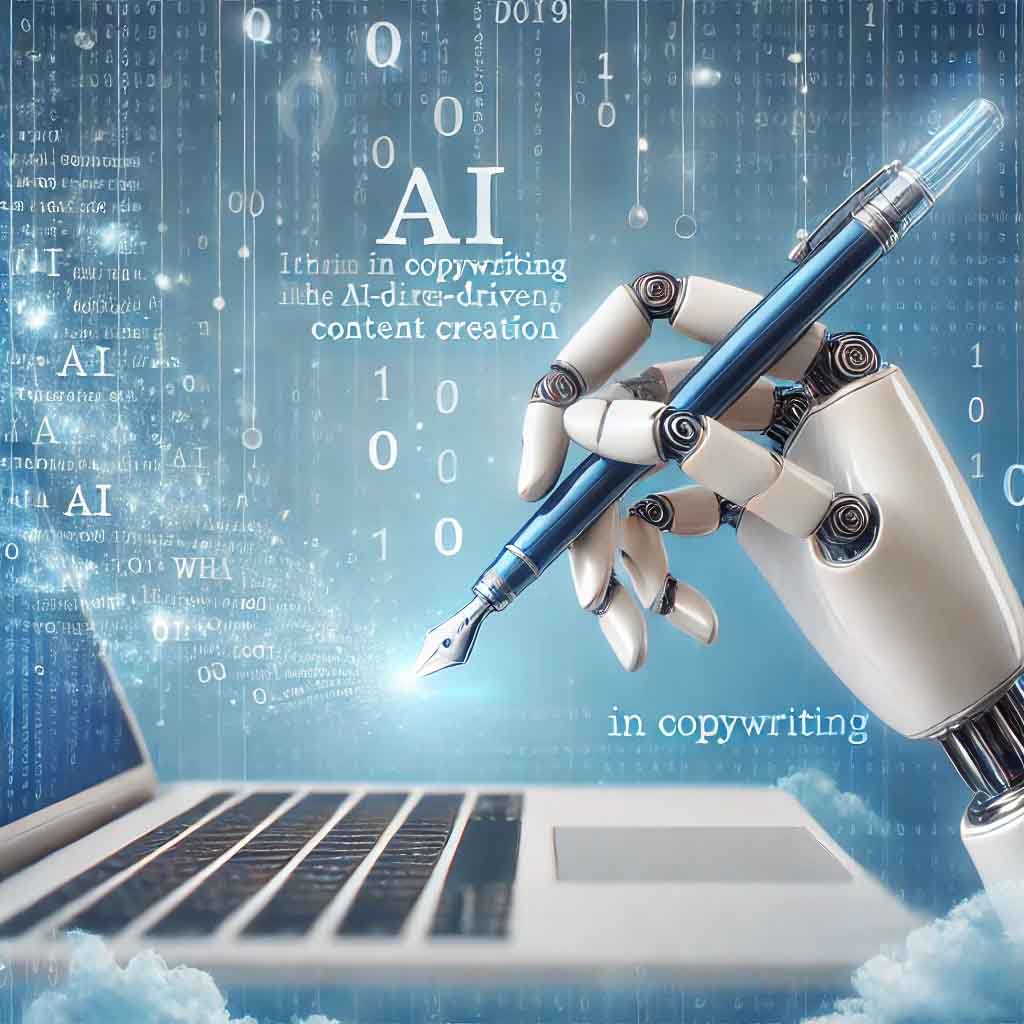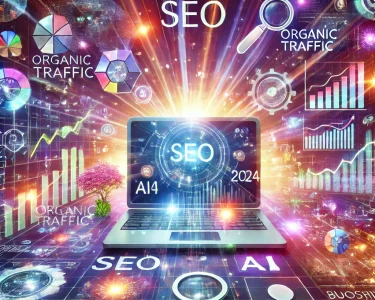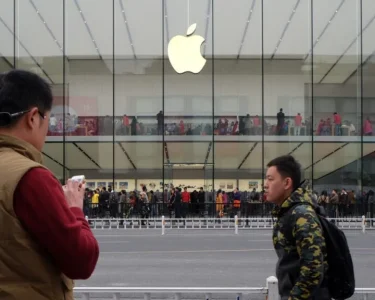The digital landscape is evolving at a rapid pace, and one of the most significant contributors to this transformation is the integration of AI in modern copywriting. With its ability to process vast amounts of data, AI offers copywriters tools that elevate creativity, improve efficiency, and personalize content like never before.
AI-Powered Tools in Copywriting
One of the primary ways AI is transforming the copywriting landscape is through the use of AI-powered writing tools. These tools not only speed up the writing process but also provide real-time suggestions on tone, style, and even keyword optimization. This is particularly useful for content marketing strategies, where SEO (Search Engine Optimization) plays a pivotal role.

For example, AI tools such as Grammarly or Jasper (formerly Jarvis) help writers craft content that is both engaging and optimized for search engines. With AI’s assistance, writers can incorporate high-volume keywords with lower competition more efficiently, making content more discoverable without sacrificing its quality. This means that copywriters now have the ability to reach larger audiences and rank higher in search engines, boosting overall brand visibility.
Improving Personalization in Content
Personalization has become a core aspect of modern marketing. In the world of copywriting, AI helps craft hyper-personalized content tailored to individual user preferences. By analyzing user data such as browsing behavior, past purchases, and demographic information, AI enables marketers to create copy that resonates more deeply with specific audiences.
This not only helps brands build a stronger connection with their customers but also leads to higher engagement rates. AI-driven personalization ensures that every piece of content feels relevant and timely to the reader, increasing the likelihood of conversion and customer loyalty.
Streamlining the Creative Process
While creativity is often seen as a purely human endeavor, AI can act as a creative collaborator. AI tools can analyze trends, predict audience preferences, and generate ideas that human copywriters can refine and improve upon. This streamlines the brainstorming process and provides writers with a fresh perspective, helping them overcome creative blocks.
For instance, AI-driven platforms can suggest headlines, taglines, or even entire content structures based on successful marketing campaigns. This doesn’t mean that AI replaces human creativity but rather enhances it by offering data-backed insights and suggestions that improve the overall content creation process.
Data-Driven Decisions
One of the most significant advantages of AI in copywriting is its ability to process and analyze vast amounts of data quickly. In the past, copywriters had to rely on intuition or manual research to gauge audience preferences and identify trending topics. Today, AI can instantly analyze data from various sources, such as social media, websites, and market trends, to inform copywriters about what content is likely to perform well.
With AI’s help, copywriters can make data-driven decisions that lead to more effective content. For example, tools like Clearscope or MarketMuse provide insights into keyword optimization, suggesting the best keywords to use based on search volume, competition, and relevance. This allows writers to create content that not only engages readers but also ranks higher in search engine results, driving more organic traffic to websites.
Challenges and Ethical Considerations
Despite its many benefits, the integration of AI in copywriting is not without challenges. One concern is the potential loss of human touch in content creation. While AI can generate impressive pieces of content, it lacks the emotional depth and nuance that human writers bring to the table. Additionally, over-reliance on AI could result in generic, formulaic content that fails to resonate with audiences on a deeper level.
Moreover, ethical considerations such as plagiarism and intellectual property rights need to be addressed. AI tools often pull from existing content to generate new pieces, which raises questions about originality and the ownership of ideas. Copywriters must strike a balance between leveraging AI’s capabilities and ensuring that their work remains authentic and unique.
The Future of AI in Copywriting
As AI technology continues to advance, its role in modern copywriting is expected to grow. The future of AI-driven copywriting will likely involve even more sophisticated tools capable of understanding context, tone, and emotional cues at a deeper level. This will enable AI to assist copywriters in crafting more emotionally resonant content, further blurring the lines between human creativity and machine efficiency.
In addition, AI may eventually take on more specialized copywriting tasks, such as writing for niche markets or creating content in multiple languages. This will open up new opportunities for brands to expand their reach globally and engage with diverse audiences in a more personalized and meaningful way.
Conclusion
AI is undoubtedly transforming the world of copywriting, offering tools that enhance creativity, improve efficiency, and allow for greater personalization. However, while AI can automate many aspects of the writing process, the human element remains essential. Writers must continue to infuse their work with emotion, originality, and authenticity to create content that resonates with readers on a deeper level.
For more insights into how AI is shaping the future of content creation, visit Digital Digest.




